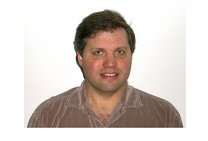Oral history interview with Thomas S. Hays
- 1996-Aug-19 – 1996-Aug-21
Thomas S. Hays was born in Winter Haven, a citrus-growing area in central Florida. His father was a physical education teacher and then principal of an elementary school, his mother also a physical education teacher. He has one brother and three sisters. His father loved tennis and forced the children out to the courts every Saturday morning. Thomas was a competitive player on the state level all through high school; when he was in college he helped his father teach tennis. His parents wanted him to attend college not too far from home, so all his applications were to southern schools. He was accepted at University of North Carolina, but it was not until his junior year that he realized he wanted to be a scientist. He did an independent study with Albert Harris, from whom he learned a great deal about what science is. After graduation he immersed himself in science to prepare for graduate school; this he did by spending three years as a technician in Bruce Niklas's lab at Duke University, where he became fascinated by mitosis. He continued his research into spindle poles and microtubules when he was accepted into the PhD program at the University of North Carolina to work in Edward Salmon's lab. He spent summers with Salmon at Woods Hole Marine Biology Laboratory, where he met his future wife, Mary Porter. Toward the end of his graduate career he decided he needed to switch to a genetics approach, so he took a postdoc with Margaret Fuller at the University of Colorado in Boulder. His wife also found a postdoc there. Hays then began his genetics work in Drosophila, studying dinein and kinesin motors. His postdoc finished with great success, and he and his wife both accepted job offers at the University of Minnesota. Their careers have progressed well, both achieving tenure and being happy with their labs and their current research. They also have a young daughter who adds color and adventure to their lives. Hays continues to publish, to write grants, to teach, to ponder the place of science in society. He loves to design and implement experiments, and he loves to be with his family; balancing these two aspects of his life is an ongoing struggle.
Access this interview
By request 1 PDF Transcript File and 3 Audio Recording Files
Fill out a brief form to receive immediate access to these files.
If you have any questions about transcripts, recordings, or usage permissions, contact the Center for Oral History at oralhistory@sciencehistory.org.









